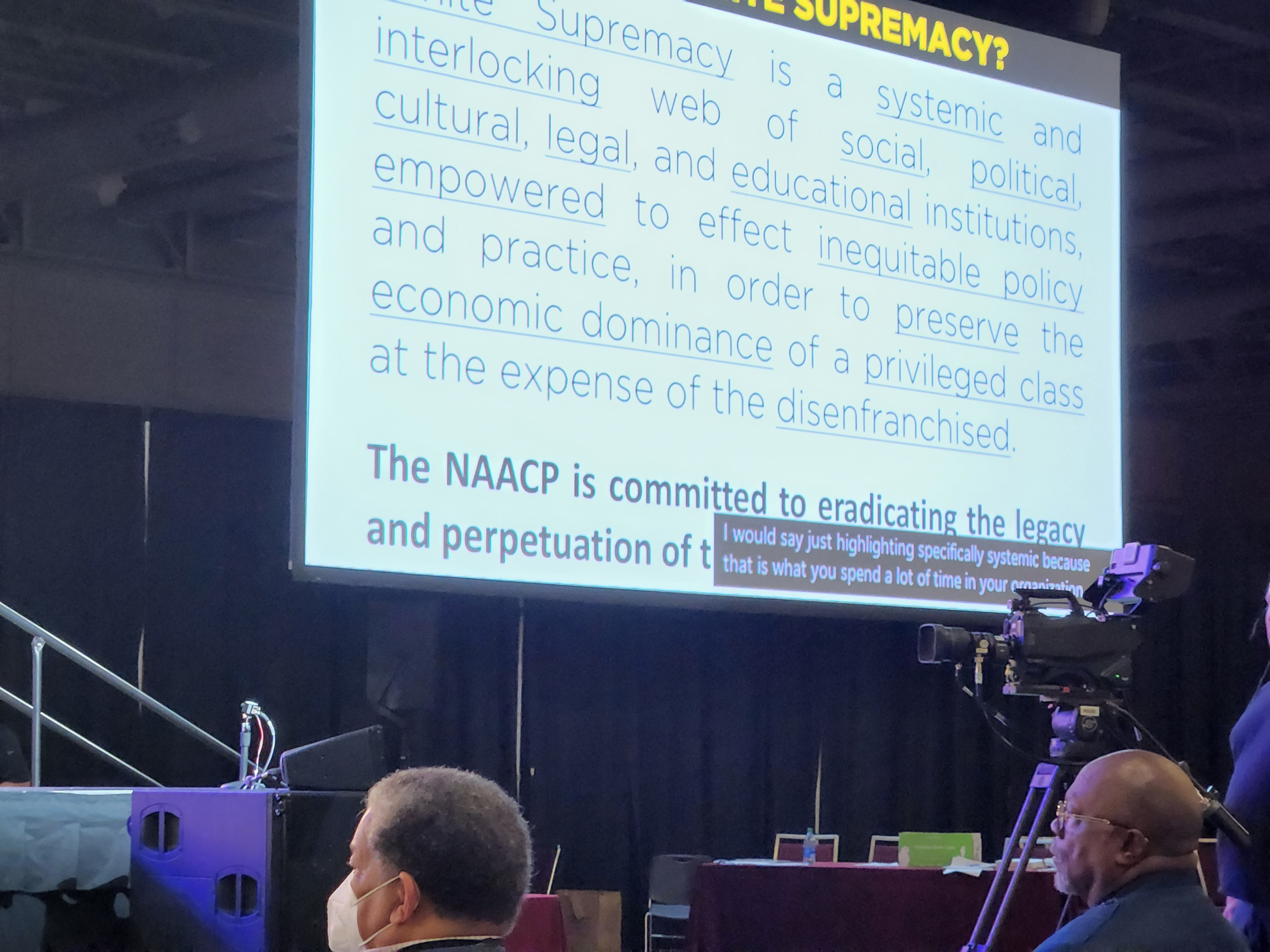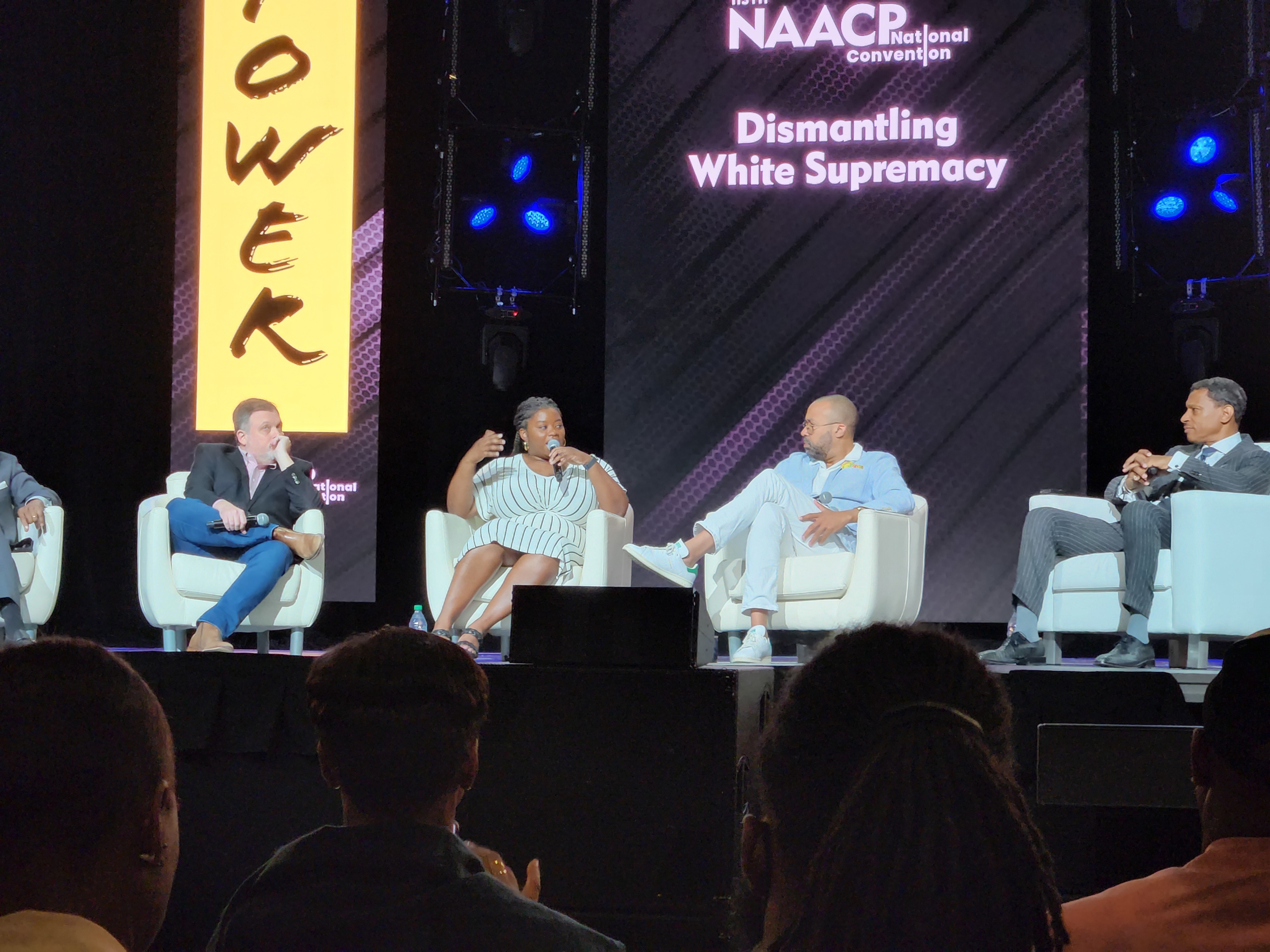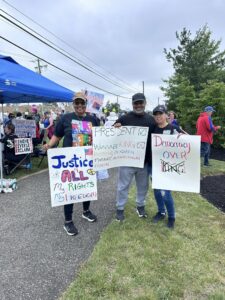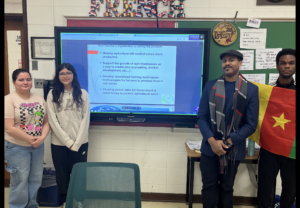Tim Wise Encourages NAACP to Attack Systemic Roots of White Supremacy

By Adianna Alston | AC JosepH Media
ATLANTIC CITY — The final day of the NAACP’s 113th National Convention began on Wednesday with a Closing Plenary Session consisting of various speakers in addition to a powerful screening of three short films produced by talented, young Black filmmakers.
However, the most intriguing part of the session was a riveting discussion which focused on topics of dismantling white supremacy and addressing systematic racism.
READ: U.S. Rep. James Clyburn Receives NAACP’s Prestigious Spingarn Medal
Tim Wise, the longtime anti-racism activist, educator and prolific author, was one of the panelists involved in this discussion.
Wise stressed the importance of recognizing the systematic structures which encourage racism and allow it to continue to permeate through all aspects of our society.
“I think we lose sight of the systematic nature of the thing that we’re fighting because we’re so focused on these sort of personal manifestations of racism,” Wise said on a panel that also included NAACP President Derrick Johnson and others.
“So, we talk a lot about white fragility and we talk a lot about white privilege, and these things are real, but the systemic piece is being lost in this. That fragility is systematic. That privilege is systematic,” he continued.
He further asserted that if racism is addressed from a systematic viewpoint, individual people don’t have to feel bad or get defensive.
“This isn’t personal. This is business,” Wise said. “This is about changing structures. So, if I’m attacking systemic racism, I’m not talking about any individual white person. If I’m talking about the police as an institution, law enforcement as an institution, I’m not talking about your uncle who happens to be a cop. I’m talking about the system of law enforcement.”
Wise proceeded to provide insight on the reasons he believes white people act so defensive when confronted with issues of equity and justice.
“One, is that it is a real threat to material advantage. It is an actual threat to the substantive economic material privileges that we enjoy,” Wise said.
“It is also a strike at the psychology of the country and the myth that we have internalized. Because, keep in mind, to be White in America is to be able to believe and to have always believed for 400 years in some way, shape or form, that if you just worked hard you could make it because that’s the myth of America.”
Wise explained how the notion of systematic racism directly challenges the reality that many white people believe to be true.
Wise notes how even the handling of the recent pandemic is rooted in systematic racism declaring, “If you think it isn’t related to white supremacy, you’re not paying attention.”
“When it first made a big national splash as a news story, only 28% of the dead were white in those first two months according to the CDC,” he said.

At the start of the pandemic, the majority of those impacted were overwhelmingly those in Black and brown communities. Because of this, there was a lack of care from white communities who did not believe that they would ever be impacted directly.
Many refused to wear masks, social distance, or get the vaccines. However, they would be in for a rude awakening.
“But by the end of 2020, 55% of the dead were white and now 63% of the dead are white. We have hundreds of thousands of white people who have buried their mothers and their fathers and their grandparents and their nieces and their nephews and even their children because we didn’t love Black life enough to care.”
“When you don’t respect Black life and when Black life doesn’t matter to you, trust me, it is only a matter of time before your life is next.”
So, how do we deal with racism when it is systemic and so deeply ingrained into the fabric of America?
Johnson said one of the important ways to deal with such deeply rooted racism is through legislation.
“You have to do so through policy change,” Johnson said during the session. “There’s policy change for public policy and corporate policy. It is not enough to have a soup kitchen because people are hungry. You have to go to why are people hungry and fix that problem. And so that is the work of the NAACP.
“The concept of democracy cannot coexist with white supremacy. They’re in contradiction with one another. Democracy is about majority rule. White supremacy is about minority rule.”
He further discussed the impacts of white supremacy and how it attempts to maintain dominance and control through entities such as corporations.
“The NAACP goal is to break all those systemic practices down so that we can exist and really benefit from our labor, our resources and our intellectual capacities,” Johnson said.
While we have far to go in the process of dismantling white supremacy and racism, conversations such as these allow for a step in the right direction.
NAACP board chairman Leon Russell, who agreed to extra time for the session because of its riveting conversation, said at the end of the talk that the NAACP needed to have more discussions like the panel had to continue “real talk” about white supremacy and tackling its systemic roots.
Follow Us Today On:
Subscribe to FRNJ EXTRA premium content newsletter for exclusive information on this event and other premium content, courtesy of Front Runner New Jersey.com.
Note from AC JosepH Media: If you like this story and others posted on Front Runner New Jersey.com, lend us a hand so we can keep producing articles like these for New Jersey and the world to see. Click on SUPPORT FRNJ and make a contribution that will do directly in making more stories like this available. Thank you for reading.






